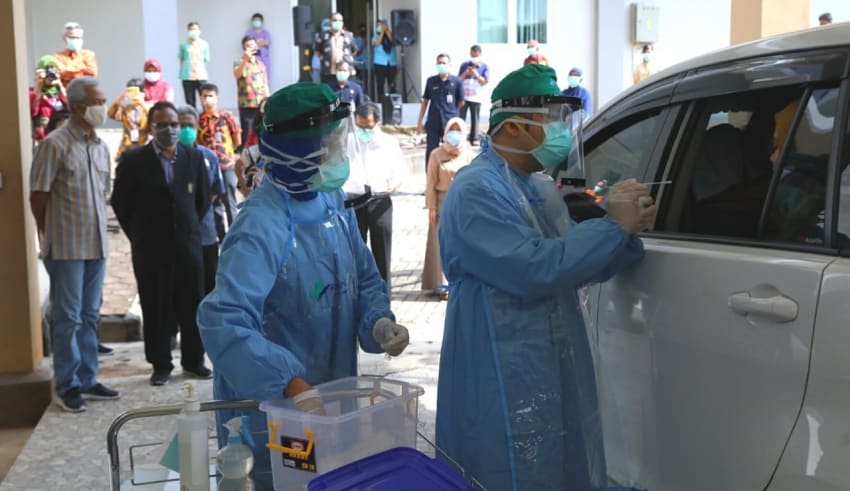
Last updated on May 7th, 2021 at 09:17 am
In efforts to ramp up much-needed mass testing for the Coronavirus, the Indonesian government has to face a challenge due to a shortage of reagents which interfering to combat the Coronavirus.
A number of laboratories in the country have temporarily stopped running polymerase chain reaction (PCR) tests because the supply of reagents over the past two days. It is because the substance essential to testing swab samples had yet to arrive from abroad.
One of them, the Palembang Health Laboratory (BBLK) in South Sumatra, had to stop testing samples due to the lack of reagents. Because of that, the province to record zero new cases of COVID-19 on Monday and Tuesday, as quoted by kompas.com.
The reagents are necessary substance to isolate the indicators for the coronavirus RNA from human DNA in swab samples to determine whether the test subject had the virus or not.
Disease control and prevention director general Achmad Yurianto of the Health Ministry acknowledged that the shortage of reagents had forced a number of laboratories to halt testing, but he assured that a new supply of reagents enough to support up to 15,000 tests was en route to the archipelago.
“The stock was sent from South Korea this morning,” said Yurianto as quoted by The Jakarta Post on Thursday, April 23.
Research, Technology, and Higher Education Minister Bambang Brodjonegoro aims to produce domestically the vital healthcare equipment essential to treat COVID-19 patients
The Indonesian government has been scrambling to procure the chemical reagents necessary for the COVID-19 PCR testsfrom countries that have a surplus of testing kits amid the global shortage.
The government has estimated that Indonesia would need to conduct 1.2 million tests by May.
However, many observers – including state officials – have cast doubt on the government’s COVID-19 figures, saying that minimal test coverage, multiple case categories and “nontransparent” data. In this case, they pointed to a high likelihood that the real number of cases in the country could be higher than official reports.
On the other hand, the Research, Technology, and Higher Education Minister Bambang Brodjonegoro aims to produce domestically the vital healthcare equipment essential to treat COVID-19 patients.
The equipment, which he refers to is the ones developed by the COVID-19 innovation and research consortium formed by the ministry, includes a Polymerase Chain Reaction (PCR) test kit, portable ventilators, and rapid test kits.
He cited that on month of May as the earliest the equipment could be produced.
Bambang concedes that the domestically developed PCR is hoped to reduce the dependence of imported reagents. The advantage of this, he continues, is that the PCR equipment can be developed based on local viruses that are sourced from Indonesian COVID-19 patients.
The equipment, he went on, is still in its trial phase, where his side expects to obtain certification for mass production and can be utilized soon.
“We must reduce our dependence since reagents are a rare commodity and every country needs them,” he said.
In order to conduct the Coronavirus rapid test kits, the minister is eyeing to be able to locally produce up to 100,000 units which would be advantageous to conduct mass test sessions within a narrower timeframe.
For information, the production of portable ventilators is developed by the University of Indonesia (UI), Bandung Institute of Technology (ITB), private firms, and the Agency for the Assessment and Application of Technology (BPPT).
























